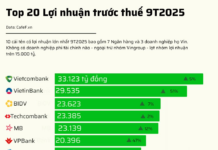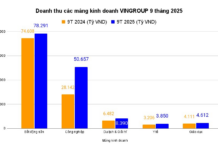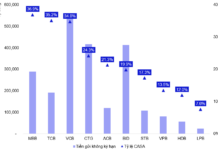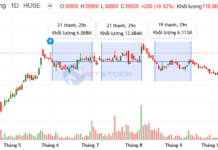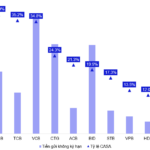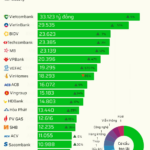One of the most talked-about issues in recent days has been the series of land auctions in the outskirts of Hanoi, which have stirred the market. Some of these auctions attracted thousands of participants, more than ten times the number of land lots up for sale. In Hoai Duc district, hundreds of investors took part in an overnight auction, driving the price of over ten land lots to over 100 million VND per square meter. The highest bid was for a lot that reached over 133 million VND per square meter – 18 times the starting price.
In a recent report to the Government Office, the Ministry of Construction identified three reasons for the price hike: low starting price and deposit, and the participation of professional investment groups who buy and resell for quick profits. It is notable that only a few winning bids have paid up, with the majority forfeiting their deposits. To address this situation, the Ministry of Construction proposed improvements to the regulations related to land auctions, including increasing the deposit amount, setting a market-based starting price, shortening the payment deadline for winning bids, and restricting participants with speculative intentions.
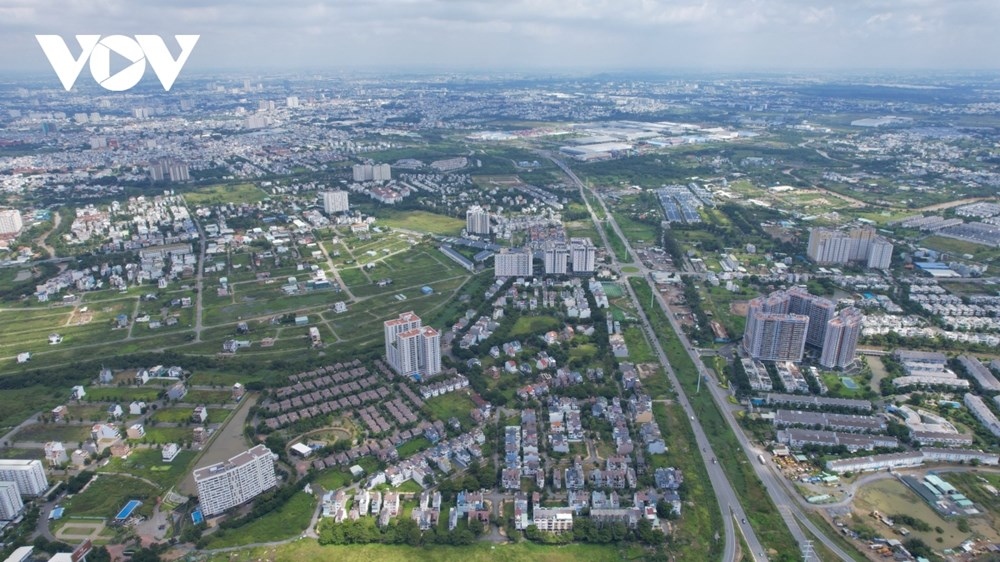
The Land Law 2024, along with the Real Estate Business Law 2023 and the Housing Law 2023, have come into force with significant changes in regulations related to real estate business and investment activities.
Regarding this issue, one of the new points in the Real Estate Business Law, Article 6, regulates the mandatory disclosure of information about real estate and real estate projects being put up for business on the housing and real estate market information system and on the website of the real estate enterprise. The information to be disclosed is specified for each type of real estate. To prevent abnormal land auction situations like the one in Hanoi, Dr. Nguyen Minh Phong, an economic expert, suggested that with a legal public database of real estate transactions, land fever would no longer exist, thus reducing risks in real estate transactions.
“To minimize the negative impact of land fever, it is essential to ensure transparent planning by disclosing the local price ceiling and floor, and at the same time, ensuring that compensation prices for state-owned projects are market-based. This will prevent misinformation or price manipulation by intermediaries and ensure accurate information disclosure,” Dr. Nguyen Minh Phong emphasized.
With numerous abandoned real estate and urban projects, as well as delayed projects across the country, Mr. Nguyen Van Dinh, Vice President of the Vietnam Real Estate Association, stated that this situation would no longer be allowed to continue, as the three laws on land, housing, and real estate business have taken effect, providing a legal basis for addressing these issues.
“The results of such auctions will be immediately revoked and annulled. This will compel project recipients to adhere to the approved plans and functions without making arbitrary changes,” said Mr. Nguyen Van Dinh.
Mr. Do Bao Ngoc, Deputy General Director of Kien Triet Securities Company, shared his thoughts on feasible projects that are still entangled in legal procedures. He believes that the new laws and decrees will provide local authorities with a framework to resolve these issues, benefiting enterprises and increasing the market supply. “For enterprises with ready projects that only need to complete the legal process, they will have the advantage of lower capital costs. Secondly, they can quickly finalize the legal process to supply products and services to the market, generating revenue and profit to meet their financial needs. Alternatively, they may choose to sell some of their ready projects to other enterprises,” explained Mr. Do Bao Ngoc.
According to Bui Xuan Dung, Deputy Minister of Construction, the issuance of legal documents guiding the implementation of the Real Estate Business Law and the Housing Law has addressed some new points that impact the real estate market. These laws have resolved inconsistencies and overlaps in legal provisions related to real estate investment and business, creating a clear and transparent legal framework.
“The new Housing Law and Real Estate Business Law, which came into force on August 1, have addressed inconsistencies and overlaps in legal provisions related to land, real estate investment, and construction. The implementing decrees have also provided clear regulations on the procedures and processes for project implementation, simplifying procedures and shortening project implementation time,” said Deputy Minister Bui Xuan Dung.
The Land Law 2024, Real Estate Business Law 2023, and Housing Law 2023, which all came into force on August 1, 2024, mark a significant step forward in完善ing the legal framework for land and real estate. These changes not only create a favorable legal corridor, promoting stable and healthy market development but also protect the rights and interests of citizens and investors. To ensure that these legal provisions are effectively implemented, close coordination is necessary between management agencies, enterprises, and the public in terms of deployment, execution, and supervision.
The Art of Optimized Language: Crafting a Captivating Title
“Khánh Hòa Streamlines with 63 New Administrative Procedures: Efficiently Resolving Land-Related Matters for Locals”
The People’s Committee of Khanh Hoa Province has announced a new decision to introduce and revoke a list of administrative procedures in the field of land, which falls under the authority of the Department of Natural Resources and Environment and the People’s Committees of district and communal levels.











